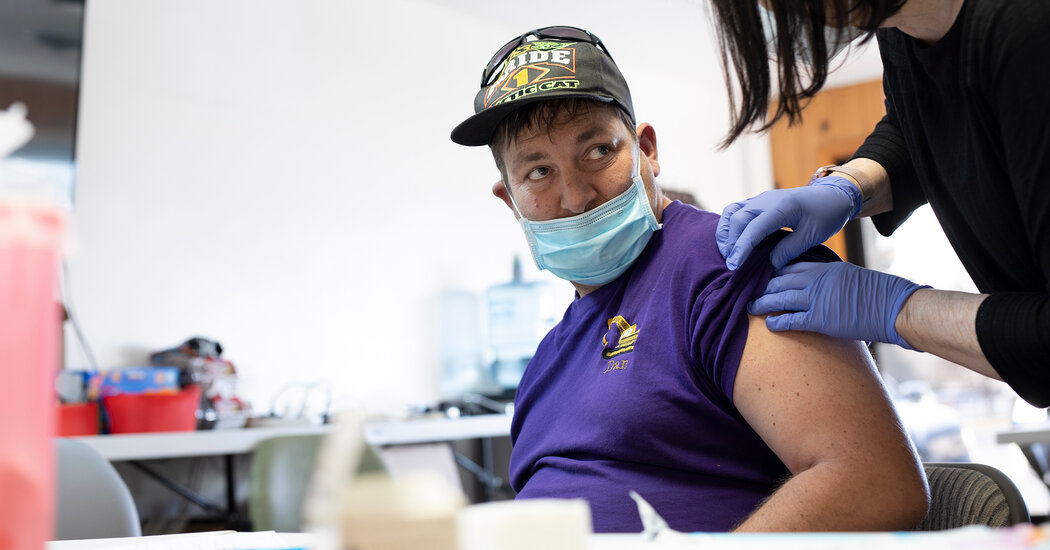Experts worry the unusual move, driven by vaccine misinformation, could fuel further efforts to interfere with immunizations.
An Idaho health department is no longer offering Covid-19 shots after its board voted last month to restrict the department from doing so, an unusual step driven largely by misinformation about the side effects and safety of the shots.
The ban will make it harder for some people to access Covid vaccines in the six-county region in southwestern Idaho, which include Adams, Canyon, Owyhee, Gem, Washington and Payette counties and covers over 300,000 residents. But doctors and public health officials also worry that the move will have a far broader effect, by giving credence to false claims about the vaccines and fueling further efforts across the nation to stop people from getting vaccinated.
“This is a real challenge for us, because I don’t think it’s going to be the last department that’s going to be directed to do that,” said Michael Osterholm, the director of the Center for Infectious Disease Research and Policy at the University of Minnesota. He added that the decision could further undermine trust in public health institutions.
Vaccine hesitancy and misinformation have hampered the uptake of Covid shots since they were first rolled out, but doctors say that pushback against the vaccines appears to have gained even more momentum very recently. This week, Donald Trump suggested that he may be open to banning some vaccines if he wins the election, and said he would discuss the idea with Robert F. Kennedy Jr., a prominent vaccine critic. And last week, Senator JD Vance, Mr. Trump’s running mate, voiced concerns about Covid vaccine side effects on an episode of “The Joe Rogan Experience.”
A handful of state and local health officials have also shared similar sentiments. The state surgeon general of Florida, for example, advised residents against getting an updated Covid vaccine this fall.
The decision in the Idaho district came after a three-and-a-half-hour meeting on Oct. 22 in which members of the public — both Idaho residents and people who called in from out of state, including several anti-vaccine activists — voiced concerns with the shots. In addition, nearly 300 people submitted written comments in advance of the meeting.
